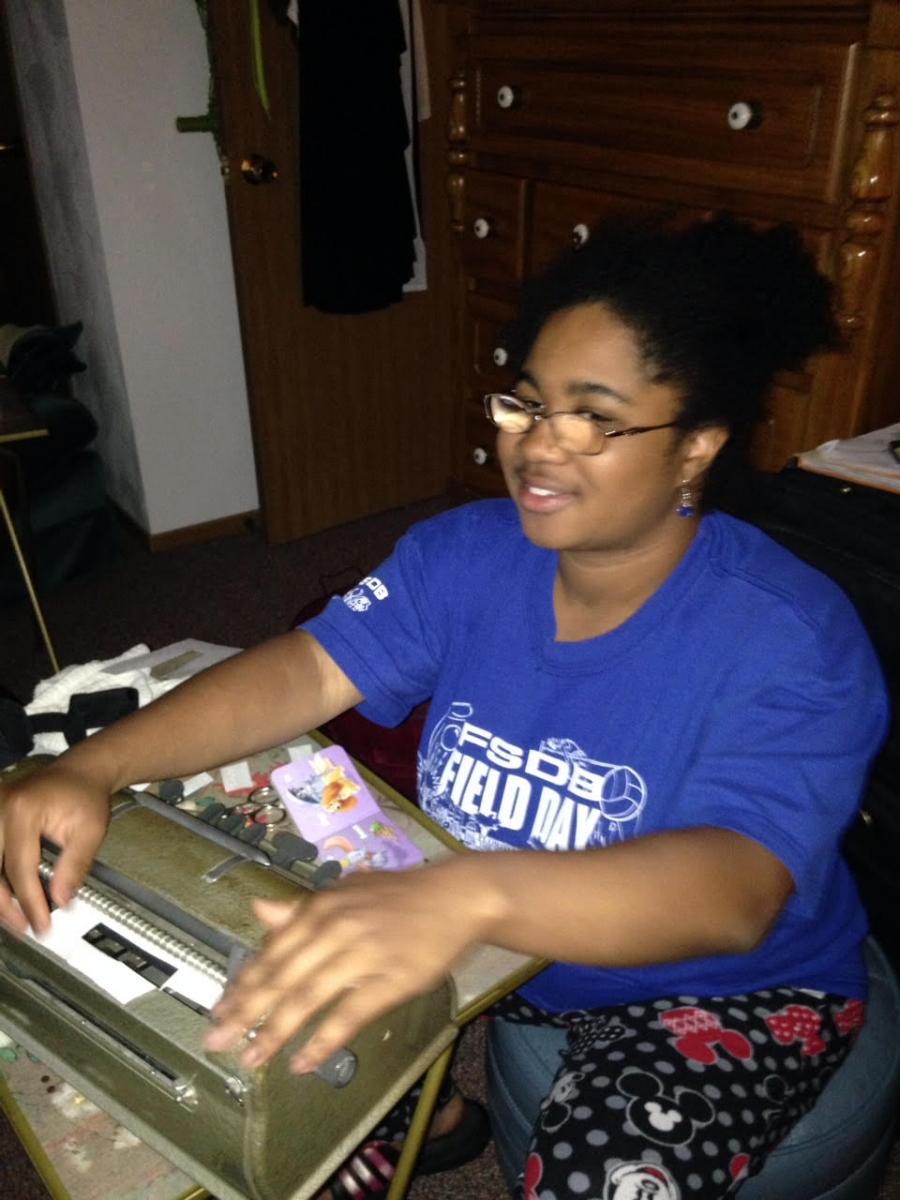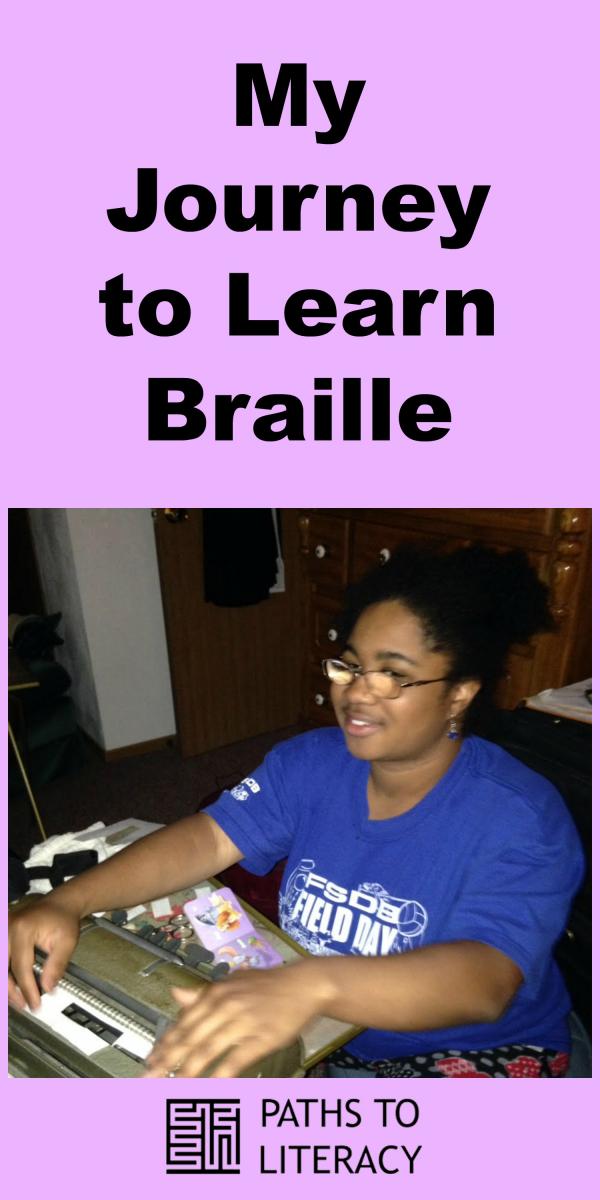My Journey to Learn Braille

I have glaucoma and currently have low vision, although I expect that, at some point in my life, I will have to use braille. When I was a young child, I thought that braille didn’t apply to me and it seemed too hard to learn, but that all changed when I started volunteering as a student in the 10th and 11th grade at the Florida School for the Deaf and Blind in St. Augustine, Florida. I volunteered as a teacher’s aide for the first grade students and I had a hard time working with the students who were blind because I didn’t know braille at all. This experience made me feel bad since I couldn’t be connected to the blind community or to others who may have had glaucoma like me.
The Importance of Learning Braille If You Have a Progressive Vision Loss
One mistake that my blind school made with me was not teaching me braille from elementary to high school, based on how my progressive eye condition. As a result, over the years I started asking my friends who were blind to help me learn braille and provide me with materials to practice. I even took a braille class at my school when I entered my senior year. My friends Courtney, Cecelia, Ted, Ann, and Sam gave me a braillewriter, books, paper, and a slate and stylus (another writing device that produces braille). I even received braille books from the National Federation of the Blind, American Action Fund for Blind Children and Adults, and the Iowa Department for the Blind’s Talking Library in Des Moines. To buff up my braille literacy skills while out of high school, I decided to take braille through the Iowa Department for the Blind, Hadley Institute for the Blind and Visually Impaired, and getting help from my mentor, Ted Hart, who is a friend of mine and a treasurer at the National Federation of the Blind.
Advice to People with Progressive Vision Loss
My advice for the blind community is to be prepared for what life may throw at you and be open to learning new things. I’m not afraid if I go blind from glaucoma because I know how to use braille, along with other skills I learned when I was blindfolded at the Iowa Department for the Blind’s Orientation Center last year. It’s always important to have a plan just in case a disaster happens in your life. If you know how to do something that will substitute for something else, then you have nothing to worry about.
Why Should Glaucoma Patients With Partial Sight Learn Braille?
You're probably wondering why those with some sight must learn braille. Well, let me give you a very simple answer to this question: being prepared for the unexpected. The truth is, even though you might have your eye pressures controlled with eye drops or surgeries for a long time, glaucoma can still be progressive and possibly build up resistance to those treatments. That’s why it is recommended that glaucoma patients learn braille, no matter how stable their sight is. Yes, you might be o.k. right now, but what if years from now your eyesight started to deteriorate? We all must think of what the future will hold for us all and be ready for the challenges that will come our way. So, if you do go blind from glaucoma and you already know braille, then you have nothing to fear! You will be able to function and live your life!
I have some friends who are blind from glaucoma and know braille very well. My friend Ciara, who is totally blind from glaucoma, gave me some really helpful tips on learning braille. One of the tips I will always keep with me as I continue my studies is to practice as much as I can and set goals every time I learn a new contraction or word in braille. My braille tutor, Ted, and my friend Ciara both remind me that glaucoma could make me blind, so I must learn braille and take it seriously. My other friend with glaucoma, Courtney, helped me by giving me braille paper and a braille writer to study with. She often praised me for my determination to learn braille, which made me feel very good.
Learning to Love Braille
Over these past three years, I've grown to enjoy braille. Every time I use my braille writer or slate and stylus to write, it’s hard to stop. Whenever I read a braille book with my blindfold on, I can find a mysterious word or contraction to learn about. I love that braille allows you to use different contractions in a word or by itself. I always enjoy learning more ways to use braille. The short forms and contractions really challenge my brain to learn new symbols to use in words. When I don’t know a contraction, I ask my one of my friends who are more experienced with braille to help me. They give me the answer encourage me to practice everyday. This also helps me to enjoy braille more! It’s great to have friends to help you be better at something you aren’t sure of. I hope to become a braille teacher, so braille is especially important to me now.
The Benefits of Using Braille

